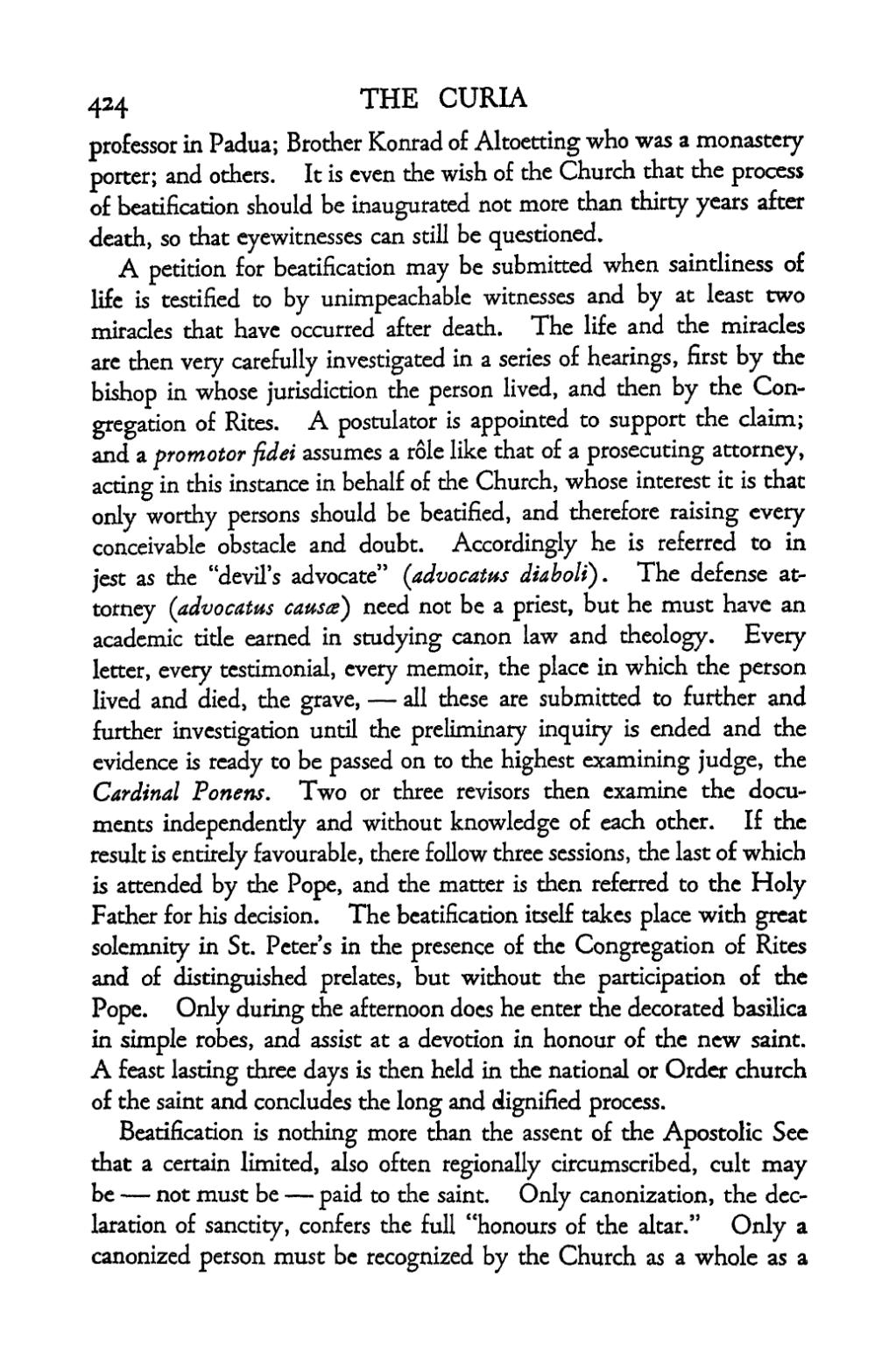THE CURIA
professor in Padua; Brother Konrad of Altoetting who was a monastery porter; and others. It is even the wish of the Church that the process of beatification should be inaugurated not more than thirty years after death, so that eyewitnesses can still be questioned.
A petition for beatification may be submitted when saintliness of life is testified to by unimpeachable witnesses and by at least two miracles that have occurred after death. The life and the miracles are then very carefully investigated in a series of hearings, first by the bishop in whose jurisdiction the person lived, and then by the Con- gregation of Rites. A postulator is appointed to support the claim; and a promoter fidei assumes a role like that of a prosecuting attorney, acting in this instance in behalf of the Church, whose interest it is that only worthy persons should be beatified, and therefore raising every conceivable obstacle and doubt. Accordingly he is referred to in jest as the "devil's advocate" (advocates diabolf). The defense at- torney (advocatw causa") need not be a priest, but he must have an academic title earned in studying canon law and theology. Every letter, every testimonial, every memoir, the place in which the person lived and died, the grave, all these are submitted to further and further investigation until the preliminary inquiry is ended and the evidence is ready to be passed on to the highest examining judge, the Cardinal Ponens. Two or three revisors then examine the docu- ments independently and without knowledge of each other. If the result is entirely favourable, there follow three sessions, the last of which is attended by the Pope, and the matter is then referred to the Holy Father for his decision. The beatification itself takes place with great solemnity in St. Peter's in the presence of the Congregation of Rites and of distinguished prelates, but without the participation of the Pope. Only during the afternoon docs he enter the decorated basilica in simple robes, and assist at a devotion in honour of the new saint. A feast lasting three days is then held in the national or Order church of the saint and concludes the long and dignified process.
Beatification is nothing more than the assent of the Apostolic See that a certain limited, also often regionally circumscribed, cult may be not must be paid to the saint. Only canonization, the dec- laration of sanctity, confers the full "honours of the altar." Only a canonized person must be recognized by the Church as a whole as a
CANONIZATION
